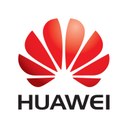Call for Papers
Call for Papers: DIMVA 2016
13th International Conference on Detection of Intrusions and Malware & Vulnerability Assessment
San Sebastian, Spain July 7-8, 2016
http://dimva2016.mondragon.edu
San Sebastian (Donostia in Basque language) is the 2016 European Capital of Culture with a broad agenda of cultural activities, and also the 2016 European City of the Year. It is a beautiful city famous by its cuisine, boasting more Michelin stars per square metre than any other city on the planet. It is also listed among the World's 20 Best Surf Towns by National Geographic. Would you miss all this?
Important Dates
- Paper Submission (Extended): Monday, Feb 8, 2016, 11:59:59pm PST
- Acceptance Notification: Monday, Mar 28, 2016
- Final Paper Version: Thursday, Apr 28, 2016
- Conference: July 7-8, 2016
About DIMVA
The annual DIMVA conference serves as a premier forum for advancing the state of the art in intrusion detection, malware detection, and vulnerability assessment. Each year, DIMVA brings together international experts from academia, industry, and government to present and discuss novel research in these areas. DIMVA is organized by the special interest group "Security - Intrusion Detection and Response" (SIDAR) of the German Informatics Society (GI). The conference proceedings will appear as a volume in the Springer Lecture Notes in Computer Science (LNCS) series.
Types of Submissions Solicited
DIMVA solicits submission of high-quality, original scientific papers presenting novel research on malware analysis, intrusion detection, and related systems security topics. Submissions of two types are invited:
- FULL PAPERS, presenting novel and mature research results. Full papers are limited to 20 pages in LNCS format, including bibliography and appendices.
- SHORT PAPERS, presenting original, still ongoing work that has not yet reached the maturity required for a full paper. Short papers are limited to 10 pages in LNCS format, including bibliography and appendices. Short papers will be included in the proceedings. The title of short papers should start with the words "Extended Abstract"
Topics of Interest
As per our tradition, DIMVA encourages submissions from the following broad areas:
- INTRUSION DETECTION
- Novel approaches and domains
- Insider detection
- Prevention and response
- Data leakage and exfiltration
- Result correlation and cooperation
- Evasion and other attacks
- Potentials and limitations
- Operational experiences
- Privacy, legal and social aspects
- Targeted attacks
- MALWARE DETECTION
- Automated analyses
- Behavioral models
- Prevention and containment
- Classification
- Lineage
- Forensics and recovery
- Underground economy
- VULNERABILITY ASSESSMENT
- Vulnerability detection
- Vulnerability prevention
- Vulnerability analysis
- Exploitation prevention
- Situational awareness
- Active probing
Organizing Committee
- General Chair: Urko Zurutuza, Mondragon University, Spain (info {at} dimva.org)
- Program Chair: Juan Caballero, IMDEA Software Institute, Spain (pc-chair {at} dimva.org)
- Publication Chair: Ricardo J. Rodríguez, Universidad de Zaragoza (publication-chair {at} dimva.org)
Program Committee
- Andrea Lanzi, University of Milan, Italy
- Baris Coskun, Yahoo! Labs, USA
- Bernhard Haemmerli, Acris GmbH, Switzerland
- Brendan Dolan-Gavitt, NYU, USA
- Christian Rossow, Saarland University, Germany
- Corrado Leita, Lastline, UK
- Federico Maggi, Politecnico di Milano, Italy
- Gianluca Stringhini, University College London, UK
- Herbert Bos, Vrije Universiteit, The Netherlands
- Jason Polakis, Columbia University, USA
- Jean Yves Marion, Lorraine University, France
- Juan Tapiador, Universidad Carlos III, Spain
- Konrad Rieck, University of Göttingen, Germany
- Levente Buttyan, Budapest University of Technology and Economics, Hungary
- Leyla Bilge, Symantec Research Labs, France
- Lucas Davi, TU Darmstadt, Germany
- Manos Antonakakis, Georgia Institute of Technology, USA
- Manuel Egele, Boston University, USA
- Marco Balduzzi, Trend Micro Research, USA
- Martina Lindorfer, SBA Research, Austria
- Mauro Conti, University of Padua, Italy
- Michael Meier, University of Bonn and Fraunhofer FKIE, Germany
- Nick Nikiforakis, Stony Brook University, USA
- Nigel Edwards, Hewlett Packard Laboratories, UK
- Pavel Laskov, Huawei European Research Center, Germany
- Roberto Perdisci, University of Georgia and Georgia Tech, USA
- Simin Nadjm-Tehrani, Linköping university, Sweden
- Somesh Jha, University of Wisconsin-Madison, USA
- Sotiris Ioannidis, FORTH, Greece
- Stefano Zanero, Politecnico di Milano, Italy
- Stelios Sidiroglou-Douskos, MIT, USA
- Sven Dietrich, John Jay College of Criminal Justice, City University of New York, USA
- Tim Kornau, Google, Switzerland
- Ulrich Flegel, Infineon Technologies AG, Germany
- Vincenzo Gulisano, Chalmers University of Technology, Sweden
- Yves Younan, Cisco Systems, Canada
- Zakir Durumeric, University of Michigan, USA
- Zhiqiang Lin, University of Texas at Dallas, USA
Steering Committe
Chairs
- Ulrich Flegel, Infineon Technologies, Germany
- Michael Meier, University of Bonn, Germany
Members
- Bernhard Haemmerli, Acris GmbH & HSLU Lucerne, Switzerland
- Christian Kreibich, ICSI, USA
- Christopher Kruegel, UC Santa Barbara, USA
- Danilo M. Bruschi, Universita degli Studi di Milano, Italy
- Federico Maggi, Politecnico di Milano, Italy
- Herbert Bos, Vrije Universiteit Amsterdam, Netherlands
- Herve Debar, Telecom SudParis, France
- Klaus Julisch, Deloitte, Switzerland
- Konrad Rieck, University of Goettingen, Germany
- Lorenzo Cavallaro, Royal Holloway, University of London, UK
- Magnus Almgren, Chalmers University of Technology, Sweden
- Marko Jahnke, Federal Office for Information Security, Germany
- Pavel Laskov, University of Tuebingen, Germany
- Robin Sommer, ICSI/LBNL, USA
- Roland Bueschkes, RWE AG, Germany
- Sven Dietrich, City University of New York - John Jay College of Criminal Justice, USA
- Thorsten Holz, Ruhr-University Bochum, Germany
Sponshorship Opportunities
We solicit interested organizations to serve as sponsors for DIMVA 2016.
Please contact sponsor-chair {at} dimva.org for details regarding sponsorship.





